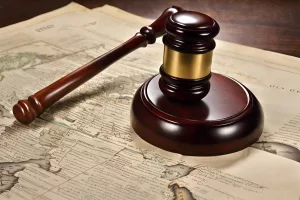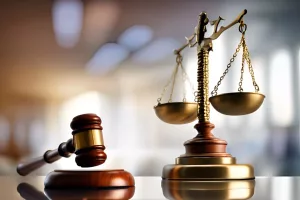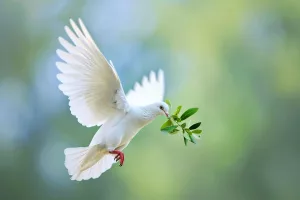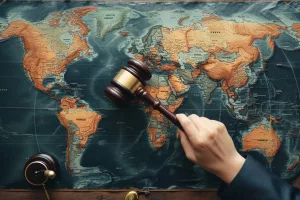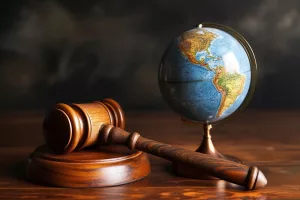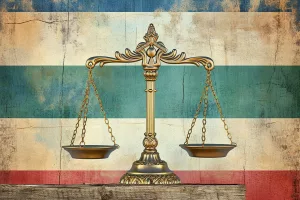South African Ministers Aaron Motsoaledi and Naledi Pandor have reported receiving death threats, with Motsoaledi receiving six to eight threatening calls per day from an unknown individual. The reasons behind the threats remain unclear, but they come in the wake of South Africa’s legal proceedings against Israel at the International Court of Justice. The incidents highlight the potential risks faced by public servants involved in international affairs of significant consequence.
The International Court of Justice (ICJ) will announce its verdict on South Africa’s appeal against Israel on January 26, 2024. The ruling will focus on whether “provisional measures” should be executed to protect the Palestinian population from further damage in accordance with the Geneva Convention. The outcome will have significant implications for conflict resolution worldwide and may establish new benchmarks in international law.
The outcome of the case, to be decided by the International Court of Justice, could have significant implications for South Africa’s global reputation and redefine the approach to human rights violations. The highly anticipated verdict, set to be announced on January 26, 2024, has the potential to impact various domains, including legal, political, and humanitarian. Regardless of the outcome, the case marks a growing openness of nations to interact with international institutions in the pursuit of justice.
South Africa has taken a bold legal move against Israel for alleged war crimes, exhibiting its unwavering dedication to justice and democracy. This audacious undertaking mirrors Nelson Mandela’s principles and stands as a testament to the nation’s resilience and unwavering commitment to justice. South Africa’s case was both compelling and emotional, spotlighting the harsh reality of Gaza, where indiscriminate violence has led to the loss of thousands of civilian lives. Despite potential diplomatic repercussions, South Africa’s legacy of resisting oppression, giving voice to the voiceless, and upholding justice persists.
South Africa’s Justice Minister, Ronald Lamola, has led a team of lawyers to present a case of genocide against Israel to the International Court of Justice (ICJ). They accuse Israel of indiscriminately bombing and blockading Gaza, resulting in the deaths of over 23,000 Palestinians, including 10,000 children. The multinational team, including esteemed professionals in international law, human rights, and advocacy, aims to seek justice for victims and prevent further atrocities in the region. Leading figures in South Africa’s legal brigade include Professor John Dugard, Advocate Max du Plessis, and Advocate Adila Hassim.
A legal battle between South Africa and Israel is unfolding at the International Court of Justice (ICJ), with South Africa accusing Israel of committing genocide. The case has sparked worldwide attention and debates about international relations and human rights activism. While opinions on the case are varied, the ICJ’s ruling will shape the norms for international diplomacy, and the outcome remains uncertain.
South Africa is preparing to battle Israel in the International Court of Justice, aiming to force Israel to cease its military operations in Gaza, which the South African government has called “genocide.” The legal team, referred to as the “Ateam,” includes top legal minds with expertise in international law and a flair for presenting compelling arguments in court. This case has deep historical and political ties to the Palestinian cause and has implications for South Africa’s global standing and internal political dynamics. While the case could potentially boost South Africa’s reputation among its allies, enforcing the ICJ’s rulings may pose a challenge.
South Africa has accused Israel of committing acts of genocide against Palestinians and has brought the case before the International Court of Justice (ICJ). The legal proceedings may take years, but interim measures are being pursued, with preliminary hearings set for January 11 and 12. The case is based on the 1948 Convention on the Prevention and Punishment of the Crime of Genocide and emphasizes South Africa’s commitment to uphold the universal right against genocide. Israel has rejected the claim and is expected to strongly contest it.
South African Minister of Justice and Correctional Services, Ronald Lamola, delivered a passionate speech at the International Court of Justice in The Hague, emphasizing the nation’s commitment to justice, fairness, and human rights. He invoked the memory of Nelson Mandela and discussed South Africa’s balanced stance on the IsraelPalestine conflict. The legal team assembled to plead South Africa’s case reflects the nation’s dedication to justice and human rights. Minister Lamola’s speech reflects the spirit of a nation that consistently strives to uphold its values and principles on the global stage.
South Africa has taken Israel to the International Court of Justice, accusing it of genocide against Palestinians. Four of South Africa’s top lawyers, including Tembeka Ngcukaitobi and John Dugard, will represent the nation’s case. The landmark case highlights the importance of legal expertise in addressing global issues and has the potential to shape the future of international law and human rights, with the world watching closely.
A proIsraeli protest turned chaotic when proPalestinian counterprotesters arrived at Sea Point Promenade in Cape Town. Tensions rose between the two factions, and law enforcement had to intervene with stun grenades and pepper spray. The protest was one of many worldwide demonstrations in response to Israel’s bombing of Gaza, causing thousands of deaths. Mayor Geordin HillLewis condemned the violence and called for tolerance, while Reverend Barry Isaacs advocated for peace and a mutual understanding between the two sides.
Easter is a festival that is celebrated with great zeal and enthusiasm around the world. However, its traditions, symbols, and delicacies vary from country to country, making it a truly unique and unparalleled experience. From the red egg crack in Bulgaria to the flying bells in France, each country celebrates Easter uniquely.


